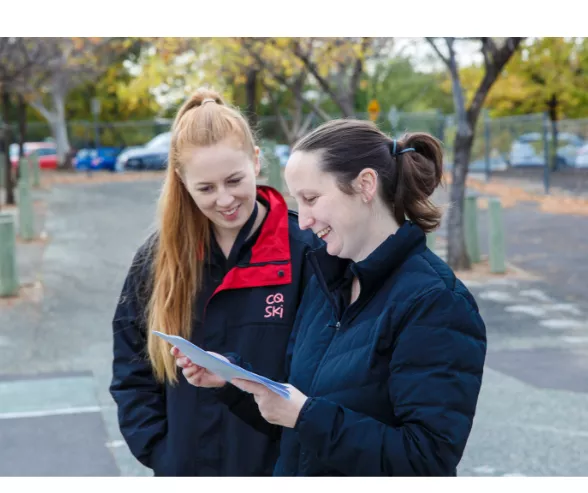Exceeding Theme 2 – Practice is informed by critical reflection
- Home
- Latest news
- We hear you
- Exceeding Theme 2 – Practice is informed by critical reflection
We continue our series of Exceeding NQS articles moving to Theme 2 – Practice is informed by critical reflection.

Let’s start by considering critical reflection. Critical reflection involves a deep level of regular and ongoing analysis, questioning and thinking that goes beyond evaluation and review. Critical reflection is continually thinking about, questioning, analysing and re-evaluating practice to ensure that quality outcomes are being achieved or to identify where further improvements could be made. Critical reflection should be the driver behind continuous improvement which then brings about the second part of this theme - “informs service operations”.
Educators and staff should be considering the theoretical perspectives underpinning their actions and decision-making, drawing on various sources of knowledge and research evidence. As part of their critical reflection, services are encouraged to evaluate the research, new ideas and practices to assess if they suit the service’s context and align with the approved learning framework and the wider philosophy of the service. This would inform and influence the decision to continue with a practice or move towards informing a change in service operations.
How does an authorised officer determine if critical reflection has informed practice at an exceeding level?
Often critical reflection at an exceeding level becomes apparent through discussions between the authorised officer and the service. In listening to the service explain a current practice, project or change to a service process, the authorised officer would begin to unpack the service’s explanation of the processes involved. The authorised officer may then seek further evidence through observations, more questions or documentation reflective of the practice that has been identified and the specific service context.
Additionally, authorised officers will refer to the questions on page 97 of the Guide to the National Quality Framework (NQF) to assist in determining if the specific practice(s) are reflective of this Exceeding theme.
Critical reflection
To further support your service in understanding how critical reflection informs practice at an exceeding level for each standard, you may wish to consider:
- Are we reflecting on practices within this standard?
- Is this reflection “critical”?
Critical reflection may be evident when:
- there has been discussion amongst the team, sharing diverse views and opinions
- outside perspectives such as theorists, current research or recommendations have been sought
- social sustainability of practices has been considered by asking if they are fair, just and equitable
- different approaches have been trialled or hypothesized to find the right fit for the service
- challenges, complaints or feedback have been reflected on and used to work though solutions
- key concepts and patterns in practice have been identified to seek ways for continual improvement
- examples of a change in practices or practices remaining the same can be explained
- an authorised officer can see or review changes as an observation, further discussions or documentation.
At the exceeding level, critical reflection supports a culture of ongoing self-assessment. The service educators and staff should be active participants in the service’s reflection processes and as a result understand the reason behind current practice and any change to the service’s approach.
Our information sheet on New Guidance on Determining Exceeding NQS for Standards is a helpful resource which clarifies the difference between Meeting NQS and Exceeding NQS levels.
For more information about Exceeding themes, visit the ACECQA website to read the Exceeding the NQS case studies. They offer practical and illustrative examples of what high quality practice may look like for each standard in a variety of settings.

